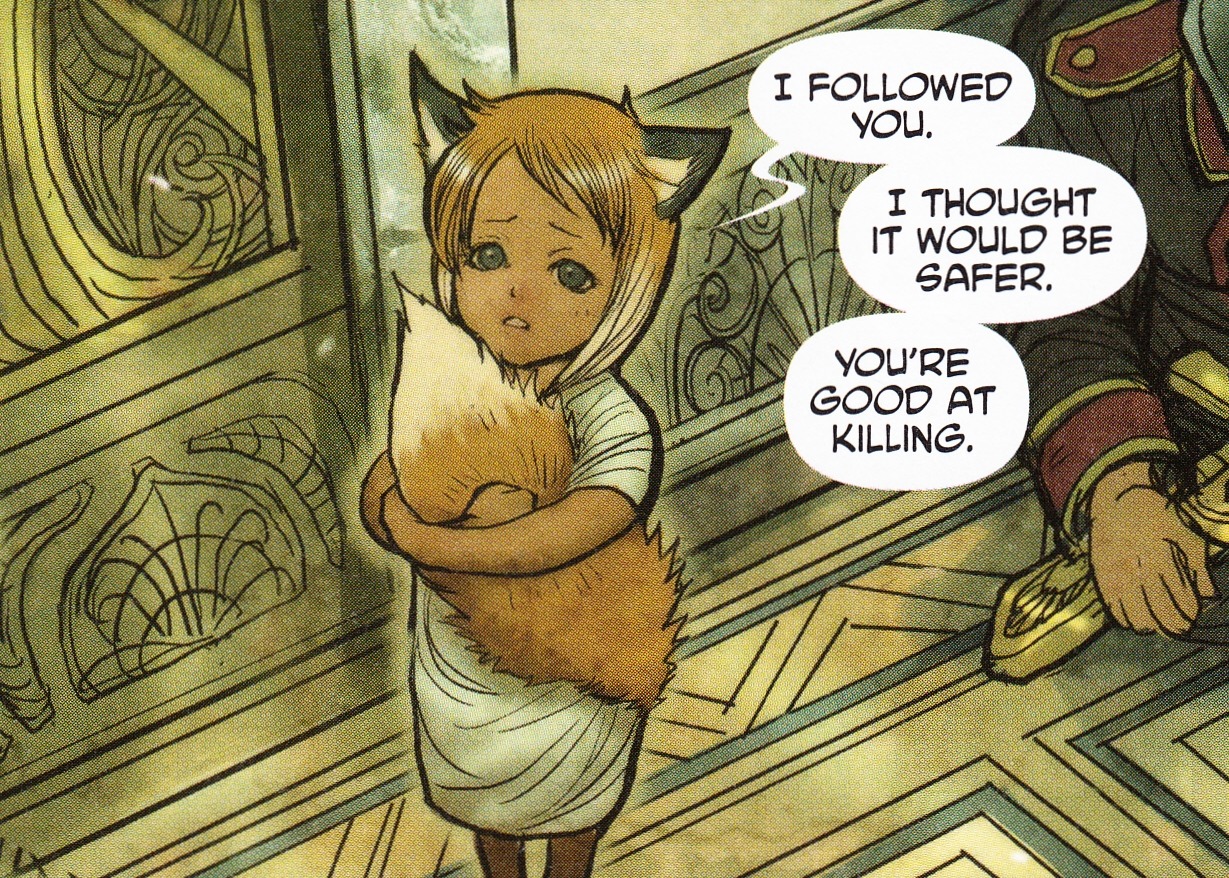I’m going to start keeping records on how many books that bloggers scream about for one million years before I get around to reading them, and then when I finally do read them, it’s like “Well I should have done this a while ago.” Marjorie Liu and Sana Takeda’s book Monstress, which in my defense has been checked out steadily from my library since the trade paperback came out (but I didn’t put a hold on it so it’s still my own fault), is one of those.

You see that cover? Every page of Monstress is of equivalent, if not greater, beauty to that cover. Sana Takeda’s art is beautiful and dreamy and gives this work of fantasy an extraordinarily epic feel. The detail on every page is incredible, her characters feel lived-in, and with all of that, she doesn’t elide the brutality our main character, Maika, both faces and dispenses in just about every issue. I was hard-pressed not to screen-cap every page for y’all, because the art is just that gorgeous.
Monstress has received a huge amount of attention, deservedly, for the art, but the writing is also wonderful. I was warned repeatedly that Monstress was quite violent, and it is, in the manner of a lot of the secondary world fantasy I’ve encountered in my life. At the same time, it’s — can I say really fun? Is that glib? Our protagonist, Maika, is fighting against something evil that lives inside her, all the while trying to escape the many forces in her world that will stop at nothing to find her; and yes, that’s a recipe for violence and mayhem in secondary world fantasy. Maika is searching for answers about her own past and her mother’s, and she has a thing many people want and she is a thing many people want, and she has to find the answers before the bad guys find her. So when I say fun, I mean that this is a familiar type of story, which I enjoy, and it’s wonderful to see it played out so skillfully, with such superb worldbuilding, with end-of-issue surprises that make me gasp yet still feel completely earned, and with characters whose arcs over the course of the series I’m excited for.

Marjorie Liu has said that she has deliberately written a book of only women — and as soon as she said it, I was like, “…Oh yeah. Oh hey. There are no men in this book.” Not actually zero, but very, very few. The soldiers are women, the slaves are women, the witches are women. It’s part of what makes this story so incredible, because what we see are a multiplicity of women with different ideas and motives and values — you know, a whole bunch of women portrayed as full people. Many of them women of color. In a comic written by two women of color. Doesn’t it make your heart grow three sizes? It does mine.
AND SERIOUSLY, THIS ART.


Particularly when you remember that Marjorie Liu and Sana Takeda do not share a language and have to communicate with each other via a translator, this is an extraordinary marriage of the vision of art and writing. I love this comic to shreds and I can’t wait to see what happens next.